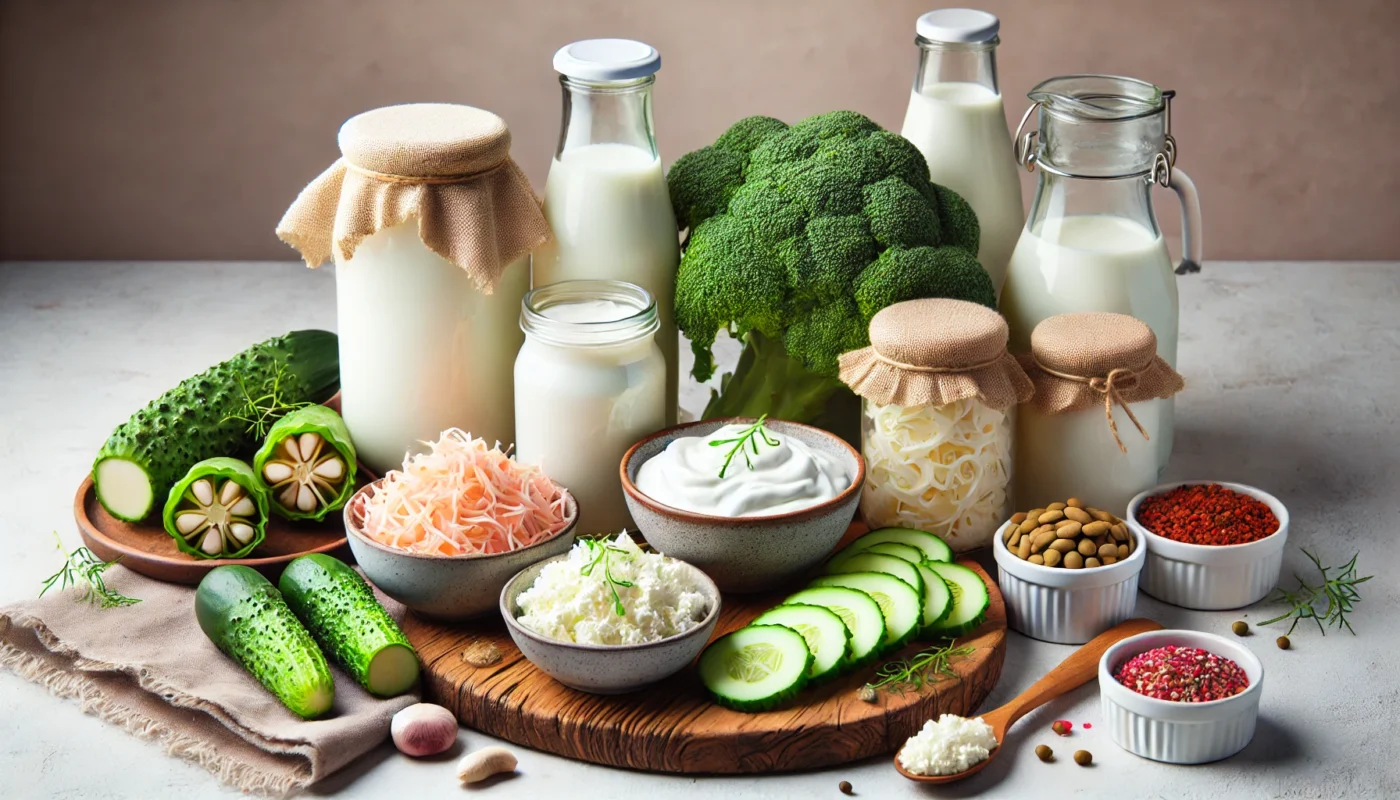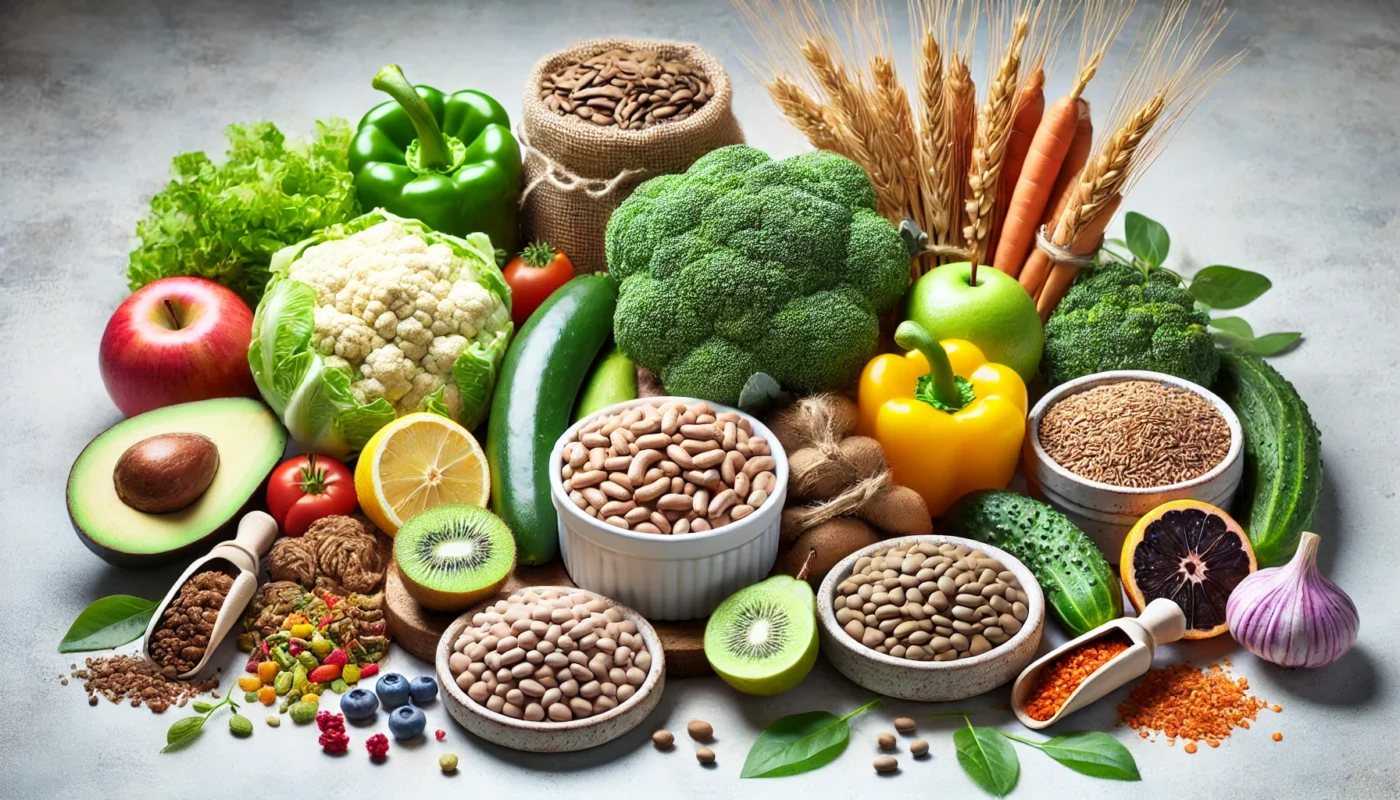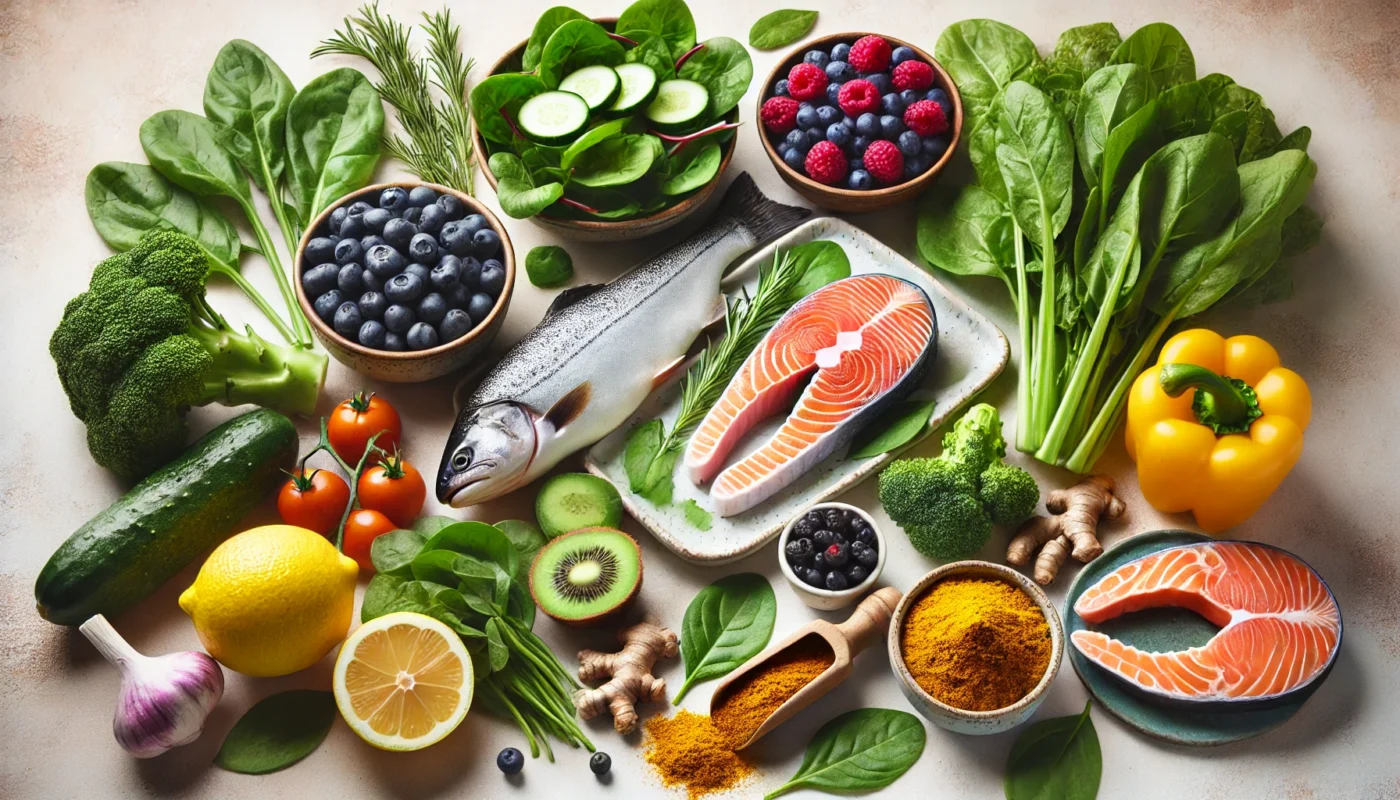Colon inflammation, often associated with conditions like Crohn’s disease, ulcerative colitis, and IBS, involves the irritation and swelling of the colon lining. This can lead to symptoms such as abdominal pain, bloating, diarrhea, and fatigue. While medical treatments are essential, dietary interventions can play a significant role in managing these symptoms.
Causes of Colon Inflammation
Colon inflammation can be triggered by various factors, including genetic predispositions, environmental influences, and lifestyle choices. Understanding these triggers can aid in developing more effective management strategies. Genetic factors may predispose individuals to certain conditions, while environmental factors, such as stress and exposure to certain chemicals, can exacerbate symptoms.
Symptoms and Diagnosis
Recognizing the symptoms of colon inflammation is the first step in seeking treatment. Common symptoms include persistent abdominal pain, frequent diarrhea, and noticeable bloating. Early diagnosis often involves a combination of medical history review, physical examinations, and diagnostic tests like colonoscopy or blood tests to measure inflammatory markers.
The Role of Inflammation in Digestive Health
Inflammation is a natural response of the immune system; however, chronic inflammation can lead to long-term health issues. In the digestive system, ongoing inflammation can damage the lining of the intestines, leading to complications such as malabsorption of nutrients and increased risk of colon cancer. Understanding the role of inflammation helps in tailoring dietary and lifestyle changes for better management.
You May Also Like: Managing Pain Through Dietary Choices
How Diet Influences Colon Health
A balanced diet rich in anti-inflammatory foods can help reduce bowel inflammation, promote healing, and support overall gut health. Let’s explore how certain foods can aid in calming an inflamed colon and contribute to a colon rest diet.
The Science Behind Diet and Inflammation
Research has shown that diet plays a crucial role in managing inflammation. Certain foods contain compounds that can either promote or reduce inflammation, influencing the overall health of the colon. For instance, omega-3 fatty acids and polyphenols have been identified as potent anti-inflammatory agents found in various foods.
The Gut-Brain Connection
The gut-brain axis highlights the relationship between digestive health and mental well-being. Stress and anxiety can exacerbate symptoms of colon inflammation, making it essential to incorporate stress-reducing practices alongside dietary changes. Foods rich in probiotics, such as yogurt and kefir, can support a healthy gut microbiome, thereby positively impacting mental health.
Personalized Nutrition for Colon Health
Not all dietary approaches work for everyone; personalized nutrition takes into account individual differences such as genetics, lifestyle, and specific health conditions. Working with a nutritionist can help tailor a diet plan that meets your unique needs, ensuring you receive all necessary nutrients while managing inflammation.

Anti-Inflammatory Foods for Colon Health
1. Leafy Greens: Vegetables like spinach, kale, and Swiss chard are rich in antioxidants and anti-inflammatory properties, helping to reduce colon inflammation.
The Power of Antioxidants
Leafy greens are packed with antioxidants such as vitamins A, C, and K, which combat oxidative stress and reduce inflammation. Incorporating these vegetables into your diet can help protect the colon lining and support overall gut health.
Ways to Incorporate Leafy Greens
Leafy greens can be consumed in various ways, from salads and smoothies to soups and stir-fries. Experiment with different recipes to find what suits your palate while ensuring you get a daily dose of these nutrient-rich vegetables.
Organic vs. Conventional Greens
Choosing organic leafy greens can minimize exposure to pesticides, which may contribute to inflammation. When possible, opt for organic options to maximize health benefits and reduce potential irritants.
2. Fatty Fish: Fish such as salmon, mackerel, and sardines contain omega-3 fatty acids, which have been shown to decrease inflammation in the gut.
Omega-3 Fatty Acids and Inflammation
Omega-3 fatty acids are essential fats known for their ability to reduce inflammation. Regular consumption of fatty fish provides these beneficial fats, supporting not only colon health but also cardiovascular and mental health.
Sustainable Seafood Choices
When selecting fatty fish, consider sustainability to support environmental health. Look for certifications like MSC (Marine Stewardship Council) to ensure your choices are environmentally friendly and support sustainable fishing practices.
Alternative Sources of Omega-3s
For those who prefer not to consume fish, alternative sources of omega-3s include flaxseeds, chia seeds, and walnuts. These plant-based options can be easily incorporated into meals to provide similar anti-inflammatory benefits.
3. Turmeric: Curcumin, the active compound in turmeric, is known for its potent anti-inflammatory effects and can be beneficial for those with IBD.
The Benefits of Curcumin
Curcumin has been extensively studied for its anti-inflammatory and antioxidant properties. It can modulate inflammatory pathways, making it a valuable addition to a diet aimed at reducing colon inflammation.
Incorporating Turmeric into Your Diet
Turmeric can be added to a variety of dishes, from curries and soups to teas and smoothies. Its warm, earthy flavor pairs well with a range of ingredients, allowing for versatile culinary uses.
Turmeric Supplements: Pros and Cons
While turmeric supplements can provide concentrated doses of curcumin, it’s important to consult a healthcare provider before starting any supplement regimen. Supplements may interact with medications or have side effects if not taken appropriately.
4. Ginger: With its soothing properties, ginger can help reduce gut inflammation and alleviate nausea and discomfort.
Ginger as a Digestive Aid
Ginger is renowned for its ability to soothe the digestive tract, making it a popular choice for alleviating nausea and digestive discomfort. Its anti-inflammatory compounds can also help reduce inflammation in the colon.
Creative Ways to Use Ginger
Fresh ginger can be used in teas, smoothies, and savory dishes, while powdered ginger works well in baking and spice blends. Explore different recipes to enjoy the health benefits of ginger in various forms.
Potential Side Effects of Ginger
While ginger is generally safe for most people, consuming large amounts may lead to heartburn or digestive upset. Moderation is key, and individuals with specific health concerns should consult their healthcare provider.
5. Berries: Blueberries, strawberries, and raspberries are high in antioxidants and fiber, aiding in reducing inflammation and promoting gut health.
The Role of Fiber in Gut Health
Berries are an excellent source of dietary fiber, which promotes regular bowel movements and supports a healthy gut microbiome. Fiber also helps in reducing inflammation by nurturing beneficial gut bacteria.
Antioxidant-Rich Berries
The vibrant colors of berries are indicative of their high antioxidant content, which can combat oxidative stress and inflammation. Regular consumption of a variety of berries can provide diverse antioxidants that benefit overall health.
Seasonal and Local Berries
Opting for seasonal and local berries ensures freshness and may offer higher nutritional value. Supporting local farmers also contributes to sustainable agricultural practices, benefiting both the environment and community.

Foods to Avoid for Colon Health
Certain foods can exacerbate inflammation and should be limited or avoided if you are experiencing symptoms of colon inflammation. These include:
Processed Foods
Processed foods, high in trans fats and sugars, can trigger inflammation and worsen symptoms. Ingredients such as artificial additives and preservatives may also irritate the digestive tract, making it crucial to read labels and choose whole, unprocessed foods whenever possible.
Red Meat
Consumption of red meat has been associated with increased inflammation and should be moderated. Opting for leaner protein sources like poultry, fish, or plant-based proteins can help reduce inflammatory markers and support overall health.
Dairy Products
Some individuals with colon inflammation may be lactose intolerant, making dairy a potential irritant. Exploring lactose-free alternatives or plant-based options like almond or oat milk can provide similar nutritional benefits without causing digestive distress.
Gluten
For those with gluten sensitivity, gluten-containing foods can contribute to inflammation. Identifying and avoiding gluten sources, such as wheat, barley, and rye, can alleviate symptoms and improve gut health for those with sensitivities or celiac disease.
Integrating Healing Foods into Your Diet
Creating a Gut-Soothing Meal Plan
Crafting a diet plan focused on reducing colon inflammation involves incorporating a variety of these anti-inflammatory foods while avoiding potential irritants. Here’s a sample meal plan to get you started:
1. Breakfast: Smoothie with spinach, banana, ginger, and almond milk.
Nutrient-Dense Start
This smoothie provides a combination of anti-inflammatory ingredients, offering a nutrient-dense start to your day. The inclusion of spinach and ginger supports digestive health, while banana and almond milk add creaminess and flavor.
2. Lunch: Grilled salmon with a side of quinoa and steamed broccoli.
Balanced Midday Meal
A lunch featuring grilled salmon and quinoa offers a balanced meal rich in omega-3 fatty acids and fiber. The addition of steamed broccoli provides antioxidants, further supporting colon health and reducing inflammation.
3. Snack: A bowl of mixed berries.
Antioxidant Boost
Enjoying a bowl of mixed berries as a snack provides a natural source of antioxidants and fiber. This simple yet effective snack helps maintain energy levels while promoting gut health throughout the day.
4. Dinner: Turmeric-infused chicken soup with carrots and celery.
Comforting Evening Meal
A turmeric-infused chicken soup is both comforting and healing, combining anti-inflammatory spices with nourishing vegetables. This soothing dish can help wind down the day while supporting digestive health.
Tips for Long-Term Management
1. Stay Hydrated: Adequate water intake is essential for digestive health and helps in alleviating symptoms of inflammation.
Importance of Hydration
Staying well-hydrated supports digestion and nutrient absorption, helping to maintain a healthy colon. Adequate water intake can also reduce the severity of symptoms such as constipation and bloating.
2. Probiotics: Incorporate probiotic-rich foods like yogurt or kefir to support gut microbiota and reduce inflammation.
Supporting the Microbiome
Probiotics play a vital role in maintaining a healthy balance of gut bacteria, which can reduce inflammation and support immune function. Regular consumption of probiotic-rich foods can enhance overall gut health and resilience.
3. Mindful Eating: Practice mindful eating by chewing thoroughly and eating slowly to aid digestion and reduce stress on the colon.
Benefits of Mindful Eating
Mindful eating encourages a greater awareness of food choices and eating habits, leading to improved digestion and reduced stress on the digestive system. This practice promotes a healthier relationship with food and supports long-term digestive health.

Scientific Insights on Gut Inflammation
Recent studies have highlighted the importance of diet in managing inflammation. Research indicates that a diet high in omega-3 fatty acids and fiber can significantly reduce inflammatory markers in the body. Additionally, the use of curcumin and ginger has shown promise in clinical settings for managing IBD symptoms.
Breakthrough Research and Findings
Emerging research continues to shed light on the complex interactions between diet and inflammation. Studies have demonstrated the effectiveness of dietary interventions in reducing the incidence and severity of symptoms in individuals with inflammatory bowel conditions.
The Role of Gut Microbiota in Inflammation
The gut microbiota plays a crucial role in modulating inflammation. A diverse and balanced microbiome can protect against excessive inflammation, highlighting the importance of dietary choices that support microbial diversity and health.
Future Directions in Research
Ongoing research aims to further understand the mechanisms by which specific foods and nutrients influence gut health. Future studies may provide more personalized dietary recommendations and novel therapeutic approaches for managing colon inflammation.
Conclusion
Navigating dietary choices can be complex, but understanding the impact of food on colon health empowers you to make informed decisions. By integrating anti-inflammatory foods and avoiding potential irritants, you can effectively manage colon inflammation and improve your overall wellbeing. Remember, while dietary changes can greatly aid in symptom management, they should complement medical treatments and not replace them.
Incorporate these strategies into your daily routine and consult with healthcare professionals to tailor a plan that best suits your needs. Achieving a healthy gut is a journey, and with the right approach, you can pave the way to improved digestive health.
Continuing Your Health Journey
Embarking on this journey requires patience and dedication, but the rewards of improved health and well-being are worth the effort. Stay informed, seek support, and remain proactive in your approach to maintaining a healthy colon and lifestyle.
Resources for Further Support
Consider reaching out to support groups, nutritionists, and healthcare providers who specialize in digestive health. These resources can provide additional guidance, encouragement, and community as you navigate your path to better digestive health.
Further Reading:
Inflammatory bowel disease (IBD)
The IBD Diet: Nutrition for Active Inflammatory Bowel Disease
anti-inflammatory diet, colon health, gut health, inflammation management, nutrient-dense foods, probiotics, mindful eating, omega-3 fatty acids, digestive health, meal planning, hydration, microbiome, dietary interventions, inflammatory bowel disease, health journey
Important Note: The information contained in this article is for general informational purposes only, and should not be construed as health or medical advice, nor is it intended to diagnose, prevent, treat, or cure any disease or health condition. Before embarking on any diet, fitness regimen, or program of nutritional supplementation, it is advisable to consult your healthcare professional in order to determine its safety and probable efficacy in terms of your individual state of health.
Regarding Nutritional Supplements Or Other Non-Prescription Health Products: If any nutritional supplements or other non-prescription health products are mentioned in the foregoing article, any claims or statements made about them have not been evaluated by the U.S. Food and Drug Administration, and such nutritional supplements or other health products are not intended to diagnose, treat, cure, or prevent any disease.

